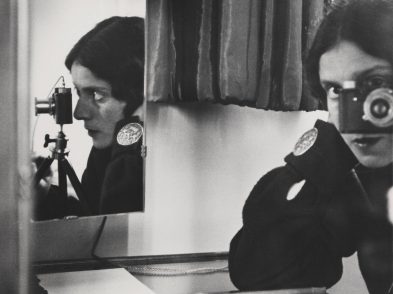It was an eerily sunny day in December and my friend Silvia and I were weaving our way to the park with the greenhouse. Her daughter Sofia had a play-date and we were, of course, late. As we dragged the poor child by the cuff through the whizzing traffic of via Bolognese, Sofia made a comment that caught both her mother and I off guard.
‘Fosca is Davide’s girl,’ she said in her out of the blue three-year-old way, ‘I’m Nico’s girl.’
And Nico’s girl she was. Upon arrival, the little rouge took her by the hand and sang her a very lengthy on-the-spot serenade. With barely two years of speech under his belt, Nico’s sing-song was simple and quite profound. Its only words were ‘my Sofia, my Sofia, my Sofia’. By the tenth ‘Sofia mia’ I gave her mother a questioning look. ‘Hanno un feeling,’ she explained.
‘Un feeling? This is more than a feeling. This is true love made manifest.’
‘Oh, Linda, let the child at least turn four,’ Silvia laughed.
‘I don’t know,’ I countered, ‘considering how long it takes for the average Italian to actually pop the question, they’d best start their eternal courtship now. Especially if they have ‘un feeling’.
As it turns out the expression ‘avere un feeling’ does not necessarily mean you’ve fallen in love, it simply means that you get on well with someone. English speakers, who talk about senti-ments as if they were describing electrical equipment, would probably say something like ‘he and I really click’ or ‘we’ve got a connection’. Both ‘click’ and ‘connection’ allude to the Anglo’s technological view of well-functioning friendship. Solid relationships ‘work’, shaky ones ‘stop working.’ It’s simply a question of mechanics. You’ve got to manipulate the rapport until you hear ‘a click’. Only then will the emotional mechanisms start functioning with some level of reliability.
But if house-hold appliances leave you cold, another adequate translation for ‘avere un feeling’ is the well-loved English phrase ‘to have chemistry.’ Let’s just say that when sparks fly or per-sonal intuition meets instant understanding, there’s undoubtedly ‘un feeling’ floating around in the stratosphere. But those who favor steadfast science over fleeting indefinable sentiment should still refrain from translating literally. In Italian, ‘abbiamo chimica’ is nothing more than a hallway warning to a class-mate who’s late for a lecture on molecular theorems.
Funnily enough, few Italians realize that, in English, the expression ‘have a feeling’ has more to do with harbouring a sneaking suspicion than it does with nurturing empathy toward someone you’re keen on. In English, if you say ‘I have a feeling about Marcello’ it means you’ve got a hunch about him. A far cry from chemistry, this type of linguistic confusion often runs rampant in Italy. Italians are not die-hard word nationalists and they employ foreign expression with the zeal of those who love to speak—no matter the tongue. Words like ‘computer’, ‘weekend’, ‘stop’ and dozens of others have quickly become an ever-present part of daily chatter. Original meanings and structures often get changed as soon as they pull into the Italian port. The straightforward noun ‘foot’ grows into ‘footing’—the pseudo-English equivalent to jogging. The leisure activity ‘camping’ becomes the universally recognized synonym for ‘camp-site’. Italians say ‘spot’ to mean television commercial and ‘beauty’ to say cosmetics’ case. All this is proof that Italy is fer-tile soil; sow even the simplest of English expressions into this ground and what sprouts is a strange new species whose significance scarcely resembles the original seed.
‘Maybe Italians change meanings because we are not very good at defining things,’ Silvia told me. ‘It’s also more fun to leave space for open interpretation,’ she mused as we watched the soul-mates play in the sand-box. Nico was singing again.
‘In English we would call their feeling ‘a first crush’, I said.
‘Crush?’ Silvia asked. ‘Is that like crash?’
I laughed, ‘No, it’s more like smash.’
‘Oh. How ugly,’ my friend frowned. ‘Un feeling sounds much more beautiful.’
Unsurprised, I smile. Leave it to the Italians to only import the beautiful words for love..







